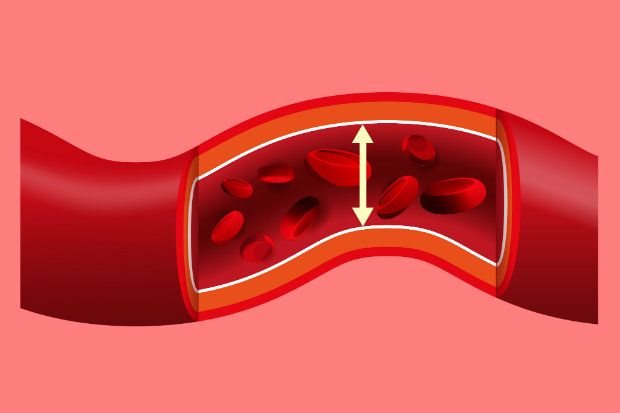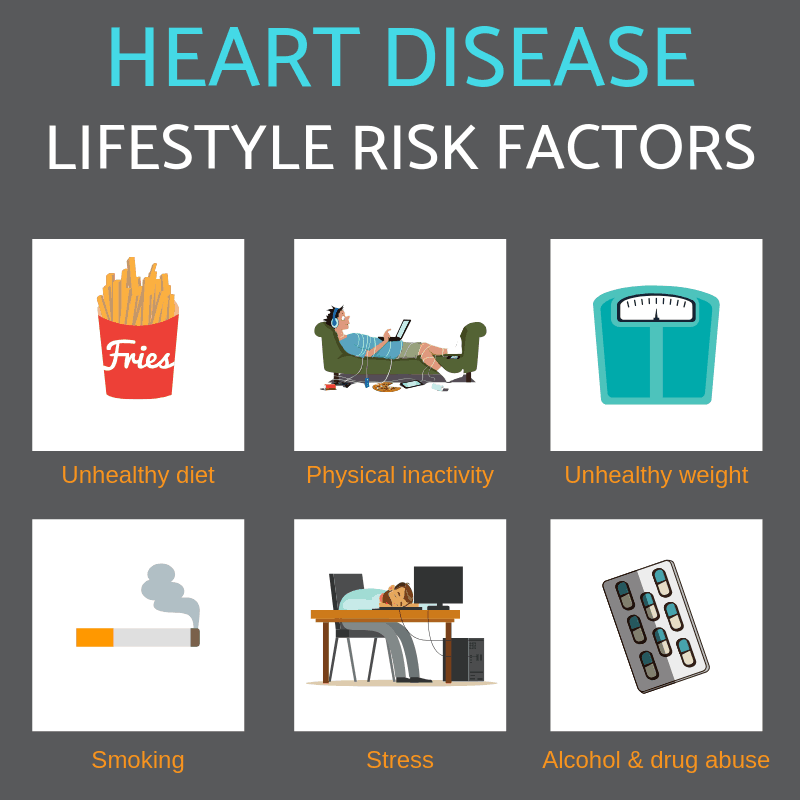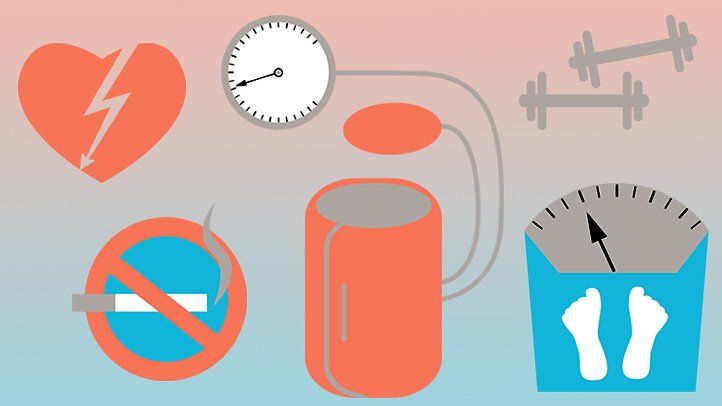Contents
Diabetes And Heart Diseases

If you have diabetes, the risk of developing heart diseases increases by double, as proven by various studies. Heart diseases do not show the signs for several years, just like diabetes.
Therefore, it is important to keep an eye on your health. Heart diseases also known as coronary diseases and cardiovascular diseases are chronic. That is why it is even more important to take care of your health when you have diabetes.
A study of 2012 says that 65% of people with diabetes are likely to die from heart diseases or heart stroke. It happens because of increased risk factors in diabetes patients. High blood sugar (hyperglycemia) and obesity are two major risk factors for diabetes. But the good thing is that you can manage both of them altogether. Some lifestyle changes can help you reduce the risk of heart diseases.
Heart Diseases That Diabetics May Develop

As mentioned earlier, heart diseases usually do not show any early symptoms, it rather presents itself in a more serious form like a heart attack or other serious events. There are some important signs that can help you recognize various heart problems-
Heart Arrhythmia
Heart arrhythmia is a condition in which the electrical impulses that coordinate your heartbeats do not work how they should. It may result in irregular heartbeats (sometimes faster, sometimes slower). The symptoms of heart arrhythmia could be:
- You may experience a running heartbeat or shortness of breath after some normal physical activity like walking on some stairs.
- You may feel a sense of discomfort or squeeze in your chest that lasts for thirty minutes to a couple of hours.
- Unexplained pain in the upper torso, neck, and jaw is also noticed in some patients.
- A faster, slower, or irregular heartbeat than usual can also be another early symptom.
- You may also experience dizziness or sometimes even fainting.
Not only the heart but the blood vessels and blood pressure are also affected when there is heart disease.
Disease In Blood Vessels

This narrowing of blood vessels could be due to plaque build-up in your arteries causing blocked and narrowed vessels leading to difficulty in blood circulation.
Heart diseases that involve blood vessels are signalled by:
- Chest pain- also known as angina
- Shortness of breath
- Extreme fatigue
- Irregular heartbeats
- And you may also face problems in your limbs like- tingling, numbness, coldness, and weakness.
Heart Infection
High blood pressure in diabetes can increase the chance of getting a heart infection. If you are suffering from a heart infection. you may experience the following symptoms:
- Fever
- Shortness of breath
- Weakness or tiredness/fatigue
- Swelling in your legs or stomach
- Changes in your heartbeats
- Dry or persistent cough
- Rashes on skin or unusual spots
Heart Attack
Heart attack is also known as Myocardial Infarction. It is a condition that occurs when the blood flow decreases so much that it can not even reach the heart muscles. The blood flow decreases to an extent that the heart can not fulfill the oxygen demands of even its own muscles.
The symptoms of heart attack could be:
Unusual Chest discomfort that includes intense squeezing and pressure on your heart muscles. This discomfort can also be felt in your neck, back, abdomen/stomach, or even jaw.
During a heart attack, you may also experience the following warning signs-
- Shortness of breath
- Profuse sweating for no particular reason
- Nausea
- Lightheadedness
CDH/ Coronary Heart Disease
CDH happens when the arteries that supply blood to the heart muscle become hardened and narrowed. This is due to the build-up of cholesterol and other material, called plaque, on their inner walls. This build-up is also called atherosclerosis. As it grows, less blood can flow through the arteries. As a result, the heart muscle can’t get the blood or oxygen it needs. This can lead to chest pain (angina) or a heart attack.
Heart Failure
This is a condition in which the heart can’t pump enough blood to meet the body’s needs. However, heart failure does not mean that your heart has stopped or is about to stop working. It means that your heart is not able to pump blood the way it should. As a result, It can affect one or both sides of the heart.
Diabetic Cardiomyopathy
Cardiomyopathy is the name for diseases of the heart muscle. This disease enlarges your heart muscle or makes it thicker and more rigid than normal. In rare cases, scar tissue replaces the muscle tissue. This can cause serious problems like- heart failure, abnormal heart rhythms, heart valve problems, sudden cardiac arrest, heart attacks, high blood pressure, infections, and other diseases that can all cause cardiomyopathy.
Prevention is always better than cure. Let us see how we can prevent ourselves from developing these diseases.
Link Between Heart Diseases And Diabetes
“If you have diabetes, your risk of developing cardiovascular diseases is more than double than that of the general population”, according to the American Heart Association. For people with diabetes, Type 2 diabetes to be specific, heart diseases are the most common cause of death. Let’s understand how diabetes affects our heart health:
Over time, high blood glucose can damage blood vessels and the nerves that control your heart. Diabetes patients are also more likely to have other health problems that increase the risk for heart disease:
- High blood pressure increases the force of blood through your blood vessels and can damage artery walls. Experiencing both high blood pressure and diabetes at the same time can greatly increase your risk for heart disease.
- Too much LDL (bad) cholesterol in your bloodstream can form plaque on damaged artery walls. If you have high blood sugar, and sugar also gets accumulated on the walls.
- High triglycerides, which is a type of fat in your bloodstream, and low HDL (“good”) cholesterol also seem to contribute to the hardening of the blood vessels.
None of these factors including high blood sugar (hyperglycemia) show early symptoms. Therefore it’s important to keep your blood sugar level in control.
Risk Factors of Heart Diseases

After knowing the symptoms, let’s jump to the risk factors that increase your chance of developing heart disease. Some of them are:
- Smoking
- Being overweight or having obesity
- Not getting enough physical activity
- Eating a diet high in saturated fat, trans fat, cholesterol, and sodium (salt)
- Drinking too much alcohol
- Having stress
People with diabetes are also more likely to have heart failure. But early diagnosis and treatment can help relieve the symptoms and stop or delay the condition from getting worse.
If you have diabetes or pre-diabetes, you have an increased risk for heart disease. Diabetic heart disease can be coronary heart disease (CHD), heart failure, and diabetic cardiomyopathy.
Preventive Measures of Heart Diseases

If you have diabetes, developing heart disease can be a serious concern. But the good news is that there are steps to take to reduce your risk for heart disease even if you have diabetes. These steps are-
Control Your Weight
If you have diabetes, make sure your weight is on a healthy level. You have to pay extra attention to the fat around your belly because it causes insulin resistance which may lead to heart diseases. If you are overweight, talk to a dietician and get a diet plan to control it.
Get Regular Physical Activity
Regular physical activity makes your heart stronger, enabling it to pump more blood with less effort. Less effort means the force on your arteries decreases. You should get regular exercise every day for 30 minutes.
Quit Smoking
If you smoke and you have diabetes then it could be dangerous for you. Nicotine narrows the blood vessels and so does diabetes. smoking also increases the risk of other long-term lung diseases. So you have to control your blood sugar and quit smoking to prevent heart diseases.
Control Your Blood Sugar
This one goes without saying. You have to maintain an optimal level of blood sugar to manage your diabetes. If you keep your diabetes in control, the risk of heart diseases decreases.
Lower LDL/Bad Cholesterol
This can be managed by eating high-fibre food like green vegetables, fruits, and whole grains. Also, keep the triglycerides level low as well to prevent heart diseases. You can opt for regular exercise, healthy eating, and reduced stress for the best outcome.
Keep Your Blood Pressure Normal
All diabetics should watch out for their blood pressure along with blood sugar. You should eat less sodium. Too much sodium causes the blood vessels to constrict, which can drive up blood pressure.
Diagnosis of Heart Diseases in Diabetics
People with diabetes should consult their doctor regularly to keep a tab on their diabetes. Diabetes is dangerous if it is not controlled and monitored regularly. Doctors will diagnose heart disease in people with diabetes on several levels. He will check the following things-
- Symptoms of heart diseases
- Medical history of the patient’s family- they will check if anyone in your family has a history of heart disease.
- A physical exam of weight and BMI.
- Some tests like A1c level, cholesterol level, blood pressure, etc.
The result of these tests will help your doctor determine, how likely the patient is to have heart disease. The doctor may ask to run some other tests to check your heart health.
A Word From MantraCare
If you are experiencing any of these symptoms or diseases, consult a doctor immediately. and get your blood sugar levels checked.
Do you want to get rid of diabetes? Join our online diabetes consultation program and reverse your Diabetes naturally through lifestyle changes such as a Personalized Diet plan, Exercise, dieticians, and health coaches.


